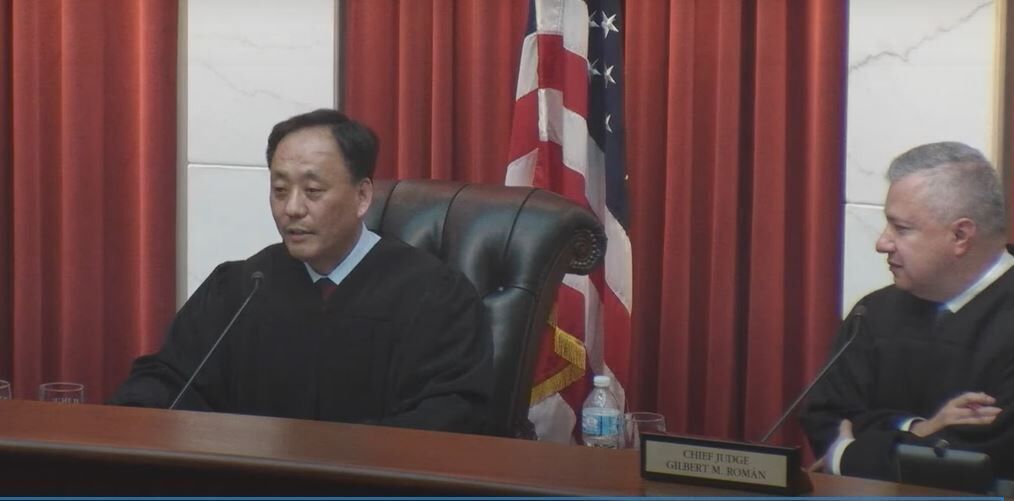10th Circuit reinstates race discrimination lawsuit over ‘crazy brown man’ comment

Whether a Hispanic insurance agent in Greeley had his contract terminated because he was perceived as a “crazy brown man running around with a gun” will now be a question for a jury to decide, as the federal appeals court based in Denver has reinstated the racial discrimination lawsuit.
A trial judge last year sided with Farmers Insurance Exchange in deciding Michael Cruz had not shown his race was the key factor in Farmers’ 2017 decision to terminate Cruz’s 31-year contract as an insurance agent. In doing so, the judge declined to consider a statement that could have constituted direct evidence of racial discrimination.
Farmers does not want a “crazy brown man running around with a gun,” the district manager allegedly told Cruz’s wife to explain why Farmers was considering ending the contract.
On Wednesday, a three-judge panel of the U.S. Court of Appeals for the 10th Circuit decided the comment was admissible as evidence. Judge Nancy L. Moritz, writing for the panel, acknowledged both the district manager and another supervisor have since denied the statement.
“But their denials do not change the outcome,” she wrote, adding it is a jury’s job to decide whether witnesses are credible.
Cruz and Farmers had an agreement making him an independent insurance contractor that dated to March 1986. On Jan. 17, 2017, a man from Greeley called Cruz’s office to complain about receiving quarterly “form letters” from Cruz. According to Cruz, the man was disrespectful and used profanity, prompting Cruz to tell him not to call his office again.
Later, the man called back and spoke with Kandace Diekman, Cruz’s wife. She reported that he continued to be rude and abusive. The man had also sent a complaint via LinkedIn to a Farmers executive, accusing Cruz of acting unprofessionally, raising his voice and calling the man “every four-letter word.”
On Jan. 19, Diekman sent an email to district manager Clint Sales documenting her phone call. Although she delivered the message using Cruz’s email address, she wrote it from her point of view.
“I answered the phone (and) he immediately started screaming at me about getting Michael’s (personal) mail at his home,” she wrote. “He was raging and nothing I tried to say would calm him down.”
Diekman concluded: “I’m only sending you this to memorialize this incident, not to be a tattletale. I’m not afraid and we are going to be open, I carry and if I feel threatened will blow a hole in him the size of Uganda. Prayers appreciated!”
Because the complaint to the Farmers executive triggered an investigation, Sales then wrote to Curt Elsbury, the sales manager for Colorado and Wyoming, and Todd Brooks, the head of Farmers’ mountain territory. Sales relayed the timeline of events and Diekman’s email.
On Feb. 1, Elsbury sent a letter to Cruz, saying the Greeley resident had been added to the “do not mail” database as a result of the complaint.
“No further actions will be taken at this time, but I do want to remind you that any further incidents could jeopardize your agent appointment agreement,” Elsbury wrote.
Sometime in March or April 2017, Brooks and Chara Kautz, another territory manager in Colorado, learned about Diekman’s email referencing carrying a gun for protection. Apparently under the impression Cruz had written that line, Farmers decided to reopen the investigation.
After Elsbury notified Sales, the district manager, that Farmers was considering terminating the agency’s contract, Sales called Diekman on April 10 to let her know. According to Diekman’s version of the phone call, Sales had told her that Farmers “didn’t want a crazy brown man running around with a gun.”
Elsbury then recommended terminating the agreement with Cruz, finding Cruz violated the contract’s requirement to “conform to normal good business practices.” Kautz forwarded the recommendation to an executive in Los Angeles, arguing it was in the company’s best interest “to terminate our contract as Michael expressed physical harm to a customer.”
She then quoted Diekman’s promise to “blow a hole” into the abusive caller. Kautz later admitted in a deposition she did not realize the email was actually from Diekman, and that the man who called the agency was not a customer.
Farmers issued a termination notice to Cruz and a three-member board upheld the decision. Cruz then filed a lawsuit against the company alleging racial discrimination was the reason for the termination. He argued a jury could conclude Farmers’ supervisors knew the email came from Diekman, who is white, but decided to get rid of Cruz “because of the stereotype of Hispanics being prone to violent behavior.”
U.S. Magistrate Judge Michael E. Hegarty evaluated the case and decided Farmers was not liable for racial discrimination. He found no “admissible evidence” showed an intent to discriminate. As part of his findings, he excluded the alleged statement that Cruz was a “crazy brown man,” deciding it was out-of-court hearsay.
Notably, Hegarty determined that because Sales was, like Cruz, an independent contractor, Sales was not involved in the decision-making process to terminate the agreement. Therefore, the “crazy brown man” comment did not qualify under the rule that allows “agent or employee” statements to be used as evidence.
On appeal to the 10th Circuit, members of the appellate panel recognized the admissibility of the “crazy brown man” statement could decide the outcome.
“It’s my understanding from your briefing, both sides’ briefing,” observed Moritz during oral arguments, “if we say it’s not hearsay, I get the impression you’re gonna get a trial.”
Sales, she continued, appeared to qualify as an “agent or employee,” meaning his alleged comment about Cruz was admissible.
“The district judge seemed to think he actually had to have decision-making authority, and that is not what our case law says,” Moritz said. “He was specifically asked to investigate the incident. And he did so. And he reported back.”
James R. Holland II, arguing on behalf of Farmers, downplayed Sales’ role in the investigation and claimed the alleged statement did not indicate racial prejudice.
“The comment here was not ‘because he’s brown, we’re getting rid of him.’ The comment was ‘we’re getting rid of him because he was running around with a gun’,” Holland told the judges. “The comment about referring to him as brown is no different than referring to him as a man.”
“No, I think it’s a big difference,” replied Senior Judge Paul J. Kelly Jr.
Moritz, in the Aug. 3 opinion, agreed Hegarty had incorrectly discarded the “crazy brown man” statement when considering the evidence of racial discrimination. Sales was involved in the investigation and made his alleged comments when calling Diekman about the potential contract termination — which was at the direction of his superior.
Aside from its obvious racial implications, Moritz elaborated, the timing of Sales’ alleged statement was close enough to the termination decision to suggest Cruz’s race was a factor.
“Elsbury sent his memorandum recommending termination just four days after Sales made the alleged comment,” she wrote.
The panel decided a jury, when considering the “crazy brown man” statement and Cruz’s other evidence, could potentially find Farmers is liable for discrimination.
The case is Cruz v. Farmers Insurance Exchange et al.













